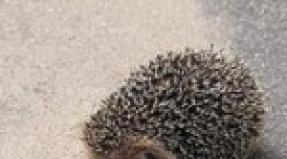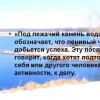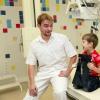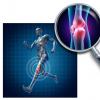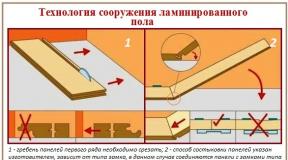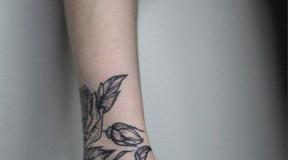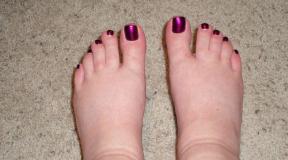Federal State Budgetary Institution “National Medical Research Center for Rehabilitation and Balneology. About the center Balneology Center
History
State Institute of Physiotherapy
On the initiative of the Moscow Physico-Therapeutic Society in 1911-1912, a project was developed for the creation in Moscow of the Institute for Physical Methods of Treatment with a clinic and an experimental base. It was approved already in Soviet times, on May 20, 1920, by the decision of the board of the People's Commissariat for Health of the RSFSR. The institute was allocated a building at 25 Petrovka Street. Its organization was headed by Professor Samuil Borisovich Vermel.
In the early years, the State Institute of Physiotherapy paid much attention to therapeutic gymnastics and massage, prosthetic work, vocational training for military disabled people, and sports medicine. One of the main tasks of the institute was the development and implementation of physiotherapy methods in the work of practical institutions. Clinical departments (therapy, neurology, orthopedics) were gradually opened. In 1922 a biophysical laboratory was opened. At the same time, the design and manufacture of the first models of domestic physiotherapy equipment began at the small factory "Bureau of Precision Mechanics".
State Central Institute of Balneology
In 1918, in Moscow, at 10 Sadovo-Samotechnaya Street, in the premises of the former gymnasium, the military department, together with the People's Commissariat for Health, opened a balneological selection hospital with 200 beds, whose functions included sorting the wounded and sick before sending them to resorts. Since 1920 it has been called the Spa Distribution Hospital. In the activities of the hospital, elements of a scientific approach to the problem are clearly visible, namely: the first instructions were created defining indications and contraindications for referral to resorts, the immediate and long-term results of balneotherapy were studied in various diseases and injuries.
In February 1921, the All-Russian Congress on the resort business was held in Moscow. On the basis of IA Bagashev's provisions, the congress in its resolutions recommended the creation in Moscow of a central scientific institute for the study of the republic's resorts. In July 1921, in the premises of the Resort Distribution Hospital, 3 departments of the Central Resort Clinic with 60 beds were opened (director - V. A. Aleksandrov). Among the tasks of the clinic were diagnostics and study clinical course diseases to be treated in resorts, research on therapeutic action physical factors, methodological work and training of spa specialists.
On July 16, 1926, the clinic was renamed into the State Institute of Balneology, and on September 26, 1926 - into the State Central Institute of Balneology. New subdivisions, renewal of scientific personnel, installation of new equipment, expansion of the list of balneological procedures and other methods of treatment, publication of scientific papers - all this allowed the institute to take the place of a leading scientific institution.
In 1934 the institute received land plot along Bolshoy Novinsky lane on the site of the former Novinsky monastery. The project of the institute complex was created and, despite significant difficulties, the main wing of the complex was built. The institute, without interrupting its work, moved to a specially equipped new building, which was distinguished by rich decoration made according to special orders (from window frames and panels made of valuable wood species to glass, door handles, lamps, curtains and bed linen).
Central Research Institute of Balneology and Physiotherapy
In 1958, the State Central Institute of Balneology and the State Institute of Physiotherapy were merged into the State Research Institute of Balneology and Physiotherapy of the Ministry of Health of the RSFSR, which after 2 years was transferred to the USSR Ministry of Health with the changed name - Central Research Institute of Balneology and Physiotherapy. The Institute became a leader among single-profile scientific institutions in different regions of the USSR (the total number of research institutes, branches and independent laboratories reached 24), from that moment many of them also indicated both main areas of specialization in their names.
In 1966 the Central Research Institute of Balneology and Physiotherapy was headed by Professor Yuri Efimovich Danilov. Under him, the authority of the head institute increased, the interaction of the specialized research institutes of balneology and physiotherapy became closer. The area adjacent to the institute was cleared of log barracks. The construction of a suburban clinic was started in the village of Yudino, Odintsovo District, Moscow Region.
In the same period, thanks to the efforts of Professor V.T. internal use... The drinking gallery for general use, designed in the form of a greenhouse, was not inferior in quality to the Kurhans of the best foreign resorts in terms of the quality of the interior.
For merits in the development of its branch of science and in the training of personnel, the Central Research Institute of Balneology and Physiotherapy in 1973 was awarded the Order of the Red Banner of Labor.
Russian Scientific Center for Restorative Medicine and Balneology
In 1998, the Research Institute was reorganized into the Scientific Center for Restorative Medicine and Balneology of the Ministry of Health of Russia, the director of which was appointed Corresponding Member of the Russian Academy of Medical Sciences (now Academician of the Russian Academy of Medical Sciences), Professor Alexander Nikolaevich Razumov. Subsequently, the name of the Center was clarified as “Russian science Center restorative medicine and balneology of the Ministry of Health and Social Development of the Russian Federation ”, the status of the Center as the leading institution of the country in its professional field was confirmed.
The main task in the work of the Federal state institution"Russian Scientific Center for Restorative Medicine and Balneology of the Ministry of Health and Social Development of Russia" - combining primary and secondary prevention, health care healthy person and medical rehabilitation.
By the end of the 20th century, the main building of the institute was outdated. In connection with the need to create a new federal-level center based on existing traditions and resources that would meet modern requirements, a project has been developed to create a unique modern multifunctional health and rehabilitation and scientific and educational complex on this site. In October 2010, an honored doctor was appointed director of the Scientific Center for Restorative Medicine and Balneology of the Ministry of Health of Russia Russian Federation Victor Alexandrovich Link.
Notes (edit)
Links
- Official site of the Federal State Institution RSC of Rehabilitation Medicine and Balneology of the Ministry of Health and Social Development of Russia;
- Scientific institutions subordinate to the Ministry of Health and Social Development, on the official website of the ministry. FGU "RNTs VMiK" - No. 10 according to the list.
Wikimedia Foundation. 2010.
HEAD OF THE CENTER:Doctor of Medical Sciences, ProfessorGerasimenko Marina Yurievna.
Federal State Budgetary Institution "RRC MRiK" of the Ministry of Health of the Russian Federation has a century of experience in the field of rehabilitation and balneology and is popularly referred to as "RESORT ON ARBAT".
Our center uses a unique, unique in the territory of the Russian Federation, a combination of various classical and innovative rehabilitation methods based on clinical experience application of modern world methods of scientific research.
The center offers rehabilitation of patients with diseases and injuries of the musculoskeletal system and nervous system, pathology of the organs of the cardiovascular, respiratory, digestive, genitourinary systems of the body, after surgical interventions on large joints and the spine, oncological, cardiological operations.
The restoration of the motor function of the limbs is carried out using highly modern robotic complexes with a virtual reality playback system.
Treatment pain syndromes of the musculoskeletal system and limitation of joint mobility is carried out using mechanotherapy equipment and an antigravity system that reproduces the state of weightlessness.
Rehabilitation treatment is carried out using classical and newest methods of physiotherapy procedures available only in our center: high-intensity extracorporeal shock wave therapy (HILT), optimized low-intensity laser therapy (LLLT), pulsed low-frequency electrostatic therapy (Khivamat system), general magnet therapy and other.
In the complex of measures for the rehabilitation of patients with various diseases, mineral water is used in the drinking gallery of the center from its own underground source - "Moscow Mineral Water", as well as methods: hydrocolonotherapy, gynecological and intestinal irrigation with mineral water.
A unique technique for improving microcirculation is presented lower limbs for obliterating diseases in a non-drug way using the Kneipp path - these are alternating reservoirs with cold (12 degrees) and warm (28-30 degrees) water.
It is possible to receive an influx of vital energy, to solve problems with chronic overwork, nervous overstrain, insomnia, stress using the unique (the only one in Moscow) stationary cryo sauna CRYO Air - 110, where cryo effects on the whole body are performed.
Feel the state of weightlessness, possibly in a specially equipped float camera... During the session, a person lies in a saturated solution of water from the ancient underground ocean (its own source), which keeps the body afloat, like in the "Dead Sea". In a state of weightlessness, where gravity is compensated, and the water temperature is equal to body temperature with an accuracy of 0.1 degrees, relaxation occurs automatically, the level of which is inaccessible in other conditions. If you are not an astronaut, then floating this is your only chance to experience weightlessness.
The combination of Turkish and Russian saunas with a "snow room", a swimming pool, is not only a pleasure, but also a health improvement. In the sauna, the body relaxes, and in the snow room, the vessels and muscles tone up. Due to the sharp change in temperature, the expansion and narrowing of blood vessels occurs, as a result, blood supply improves, metabolic processes strengthen and the body gets rid of toxins.
Without leaving the city, you have the opportunity to receive medical procedures in the pool with mineral water "Rapa" (water of the ancient underground ocean), according to chemical composition and medicinal properties superior sea water"Dead Sea".
Pass the course effective treatment in case of diseases of the bronchopulmonary system, it is possible in the "Salt Cave" (speleo and halo chambers), where the natural microclimate of natural karst salt caves and mines has been recreated. According to its properties, the salt aerosol located in the salt cave has an effective natural hypobacterial, hypoallergenic and ionizing properties, and also has a unique positive psychotherapeutic effect on the human body.
The center conducts a comprehensive program for active aging "Anti-age therapy".
This program includes: consultations with a nutritionist, endocrinologist and assessment of body composition using a computerized BOD POD camera. Application of techniques of hardware cosmetology on ultra-modern equipment: laser installation "SmartXcideDOT", "SYNCHRO FT", installation of radiofrequency lifting and lipolysis "EXILIS ELITE", methods of classical reflexology and hardware reflexology, hydrotherapy ( cold and hot shower, air hydromassage, Aqua therapy in the pool, Charcot shower, underwater massage shower, different kinds wraps and baths).
Evaluation of the effectiveness of the ongoing rehabilitation is carried out using ultrasound examinations, functional, X-ray, endoscopic diagnostics using the latest generation expert-class equipment.
Without leaving the city, and without interrupting from everyday affairs and work, visiting our Center, you have the opportunity in the very heart of Moscow to undergo a full-fledged course of sanatorium-resort treatment and a cycle of health improvement.
Select a subsection Information about subordinate organizations with information about their tasks and functions, postal and e-mail addresses, contact phone numbers Federal State Budgetary Institution "Novosibirsk Research Institute of Traumatology and Orthopedics named after Ya.L. Tsivyan "Federal State Budgetary Institution" Dmitry Rogachev National Medical Research Center for Pediatric Hematology, Oncology and Immunology "Federal State Budgetary Institution National Medical Research Center for Psychiatry and Narcology named after V.P. Serbian "Federal State Budgetary Institution" Research Institute for the Study of Leprosy "Federal State Budgetary educational institution higher education"Northern State medical University"State budgetary educational institution of higher education" Astrakhan State Medical University "Federal State Budgetary Educational Institution of Higher Education" Altai State Medical University "Federal State Budgetary Educational Institution of Higher Education" Amur State medical Academy "The Ministry of Health of the Russian Federation Federal State Budgetary Educational Institution of Higher Education" Pacific State Medical University "Federal State Budgetary Educational Institution of Higher Education" North Ossetian State Medical Academy "Federal State Budgetary Educational Institution of Higher Education" Volgograd State Medical University "State Budgetary Educational Institution of Higher Professional Voronezh State Medical University named after N.N. Burdenko "Federal State Budgetary Educational Institution of Higher Education" Ural State Medical University "Federal State Budgetary Educational Institution of Higher Education" Ivanovo State Medical Academy "Federal State Budgetary Educational Institution of Higher Education" Izhevsk State Medical Academy "Federal State Budgetary Educational Institution of Higher Education" Irkutsk State Medical University "Federal State Budgetary Educational Institution of Higher Education" Kazan State Medical University "Federal State Budgetary Educational Institution of Higher Education" Kemerovo State Medical University "Federal State Budgetary Educational Institution of Higher Education" Kirov State Medical University "Federal State Budget new educational institution of higher education "Kuban State Medical University" Federal State Budgetary Educational Institution of Higher Education "Krasnoyarsk State Medical University named after Professor V.F. Voino-Yasenetsky "of the Ministry of Health of Russia Federal State Budgetary Educational Institution of Higher Education" Kursk State Medical University "Federal State Budgetary Educational Institution of Higher Education" Dagestan State Medical University "Federal State Autonomous Educational Institution of Higher Education IM Sechenov First Moscow State Medical University (Sechenov University) Federal State Budgetary Educational Institution of Higher Education “Moscow State University of Medicine and Dentistry named after A. I. Evdokimov "Federal State Budgetary Educational Institution of Higher Education" Russian National Research Medical University named after N.I. Pirogov "Federal State Budgetary Educational Institution of Higher Education" Nizhny Novgorod State Medical Academy "Federal State Budgetary Educational Institution of Higher Education" Novosibirsk State Medical University "Federal State Budgetary Educational Institution of Higher Education" Omsk State Medical University "Federal State Budgetary Educational Institution of Higher Education" Orenburg State Medical University "Federal State Budgetary Educational Institution of Higher Professional Education" Perm State Medical University named after Academician E.A. Wagner "Federal State Budgetary Educational Institution of Higher Education" Perm State Pharmaceutical Academy "Federal State Budgetary Educational Institution of Higher Education" Rostov State Medical University "Federal State Educational Budgetary Institution of Higher Education" Ryazan State Medical University named after Academician. I.P. Pavlova "Federal State Budgetary Educational Institution of Higher Education" Samara State Medical University "Federal State Budgetary Educational Institution of Higher Education" St. Petersburg State Pediatric Medical University "Federal State Budgetary Educational Institution of Higher Education" First St. NS. Pavlova "of the Ministry of Health of the Russian Federation State educational institution of higher professional education" North-Western State Medical University named after II Mechnikov "Federal State Budgetary Educational Institution of Higher Education" St. Petersburg State Chemical and Pharmaceutical Academy "Federal State Budgetary Educational Institution of Higher Education "Saratov State Medical University named after V. I. Razumovsky" Federal State Budgetary Educational Institution of Higher Education "Smolensk State Medical University" Federal State Budgetary Educational Institution of Higher Education "Stavropol State Medical University" Federal State Budgetary Educational Institution of Higher Professional Education "Tver State Medical University University "Federal State f budgetary educational institution of higher education "Siberian State Medical University" Federal State Budgetary Educational Institution of Higher Education "Tyumen State Medical University" Federal State Budgetary Educational Institution of Higher Professional Education "Bashkir State Medical University" Federal State Budgetary Educational Institution of Higher Education "Far Eastern State Medical University "Federal State Budgetary Educational Institution of Higher Education" South Ural State Medical University "State Budgetary Educational Institution of Higher Professional Education" Chita State Medical Academy "Federal State Budgetary Educational Institution of Higher Education" Yaroslavl State Medical University "Federal State Budget local educational institution of additional professional education "Russian Medical Academy of Continuing Professional Education" State budgetary educational institution of additional professional education "Irkutsk State Medical Academy postgraduate education "State budgetary educational institution of additional professional education" Kazan State Medical Academy "State budgetary educational institution of additional professional education" Novokuznetsk State Institute for Advanced Training of Doctors "Federal State Budgetary Institution of Continuing Professional Education" All-Russian Educational and Scientific Methodological Center for Continuing Medical and Pharmaceutical Education " State budgetary educational institution of additional professional education "Penza Institute for Advanced Training of Doctors" Federal State Budgetary Professional Educational Institution "Kislovodsk Medical College" Federal State Budgetary Professional Educational Institution "Penza Basic Medical College" State budgetary educational institution of secondary vocational education "Ulyanovsk Pharmaceutical College" Federal State Budgetary Institution "All-Russian Center for Eye and Plastic Surgery" Federal State Budgetary Institution "National Medical Research Center of Hematology" Federal State Budgetary Institution "State Scientific Center for Dermatovenereology and Cosmetology" A.N. Ryzhikh "Federal State Budgetary Institution" National Medical Research Center for Preventive Medicine "Federal State Budgetary Institution" Ivanovo Research Institute of Maternity and Childhood named after V.N. Gorodkov "Federal State Budgetary Institution" Institute of Surgery named after A.V. Vishnevsky "Federal State Autonomous Institution" Interbranch Scientific and Technical Complex "Eye Microsurgery" named after Academician S.N. Fedorov "Federal State Budgetary Institution" Moscow Research Institute of Eye Diseases named after Helmholtz "Federal State Budgetary Institution" Scientific Research Children's Orthopedic Institute named after G.I. Turner "Federal State Budgetary Institution" Research Institute of Influenza "Federal State Budgetary Institution" National Medical Research Center of Oncology named after N.N. Petrov "Federal State Budgetary Institution" Center for Strategic Planning and Management of Biomedical Health Risks "Federal State Budgetary Institution" National Medical Research Center for Obstetrics, Gynecology and Perinatology named after Academician V. I. Kulakova "Federal State Budgetary Institution" Scientific Center for Examination of Funds medical use "Federal State Budgetary Institution" National Medical Research Center named after Academician E.N. Meshalkin "Federal State Budgetary Institution" Novosibirsk Research Institute of Tuberculosis "Federal State Budgetary Institution" Privolzhsky Federal Medical Research Center "Federal State Budgetary Institution" National Medical Research Center of Cardiology "Federal State Budgetary Institution Russian Scientific Center" Reconstructive Traumatology and Orthopedics " named after academician G.A. Ilizarov Federal State Budgetary Institution National Medical Research Center for Rehabilitation and Balneology Federal State Budgetary Institution Russian Scientific Center for Radiology and Surgical Technologies named after Academician A.M. Granova "Federal State Budgetary Institution" Russian Scientific Center of Roentgenoradiology "Federal State Budgetary Institution" Russian Order of the Red Banner of Labor Research Institute of Traumatology and Orthopedics named after R.R. Harmful "Federal State Budgetary Institution" Russian Center for Forensic Medicine "Federal State Budgetary Institution" Rostov Research Institute of Obstetrics and Pediatrics " Research Institute of Ear, Throat, Nose and Speech "Federal State Budgetary Institution St. Petersburg Research Institute of Phthisiopulmonology" Federal State Budgetary Institution National Medical Research Center for Psychiatry and Neurology named after V.M. Bekhterev "Federal State Budgetary Institution" Saratov Research Institute of Traumatology and Orthopedics "Federal State Budgetary Institution" National Medical Research Center named after V.A. Almazov "Federal State Budgetary Institution" Ural Research Institute of Dermatovenerology and Immunopathology "Federal State Budgetary Institution Ural Research Institute of Maternity and Infancy Protection Federal State Budgetary Institution National Medical Research Center infectious diseases"Federal State Budgetary Institution" National Medical Research Radiological Center "Federal State Budgetary Institution" National Research Center for Epidemiology and Microbiology named after Honorary Academician N.F. Gamaleya "Federal State Budgetary Institution" National Medical Research Center for Transplantology and Artificial Organs named after Academician V.I. Shumakov "Federal State Budgetary Institution" Central Research Institute for Organization and Informatization of Health Care "Federal State Budgetary Institution" Central Research Institute of Dentistry and maxillofacial surgery"Federal State Budgetary Institution" National Medical Research Center of Traumatology and Orthopedics named after N.N. Priorov "Federal State Budgetary Institution" National Medical Research Center of Endocrinology "Federal State Budgetary Institution" All-Russian Center for Disaster Medicine "Zashchita" Federal State Budgetary Institution "Sanatorium for Children with Parents" Kratovo " Federal Center for Cardiovascular vascular surgery"(Astrakhan) Federal State Budgetary Institution" Federal Center cardiovascular surgery "(Penza) Federal State Budgetary Institution" Federal Center for Traumatology, Orthopedics and Endoprosthetics "(Cheboksary) Federal State Budgetary Institution" North Caucasian Multidisciplinary Medical Center "Federal State Budgetary Institution" Federal Center for Neurosurgery "(Tyumen ) Federal State Budgetary Institution "Federal Center for Neurosurgery" (Novosibirsk) Federal State Budgetary Institution "Federal Center for Cardiovascular Surgery named after S.G. Sukhanov "(Perm) Federal State Budgetary Institution" Center for Medical Rehabilitation "Luch" Federal State Budgetary Institution "Federal Center for High Medical Technologies" (Kaliningrad) Federal State Budgetary Institution "Federal Center for Traumatology, Orthopedics and Endoprosthetics" (St. Smolensk) Federal State Budgetary Institution "Federal Center for Traumatology, Orthopedics and Endoprosthetics" (Barnaul) Federal State Budgetary Institution "Federal Center for Cardiovascular Surgery" (Khabarovsk) Federal State Budgetary Institution "Federal Center for Cardiovascular Surgery" ( Krasnoyarsk) Federal State Budgetary Institution "Federal Center for Cardiovascular Surgery" (Chelyabinsk) Federal State Budgetary Institution "Tuapse multidisciplinary center "Federal state institution" Kazan psychiatric hospital (hospital) of a specialized type with intensive supervision "Federal state institution" Kaliningrad psychiatric hospital (hospital) of a specialized type with intensive supervision "Federal state institution" Kostroma psychiatric hospital (hospital) of a specialized type with intensive supervision "Federal state institution "Novosibirsk psychiatric hospital (hospital) of a specialized type with intensive supervision" Federal state institution "Oryol psychiatric hospital (hospital) of a specialized type with intensive supervision" Federal state institution "St. Petersburg psychiatric hospital (hospital) of a specialized type with intensive supervision" Federal state institution "Volgograd psychiatric hospital (hospital) of a specialized type with intensive supervision" Federal State Budgetary Institution children's sanatorium "Bimlyuk" Federal state budgetary institution "Children's pulmonological sanatorium" Kolchanovo "Federal state budgetary institution sanatorium named after M.I. Kalinina Federal State Budgetary Institution Sanatorium "Mountain Air" Federal State Budgetary Institution Children's Sanatorium "Rest" Federal State Budgetary Institution Children's Psychoneurological Sanatorium Teremok Federal State Budgetary Institution Children's Psychoneurological Sanatorium Kaluga-Bor Federal State Budgetary Institution Children's Sanatorium Voskhod Federal State Budgetary Institution Children's Sanatorium "Vasilievskoye" Federal State Budgetary Institution Children's Orthopedic Sanatorium "Pionersk" Federal State Budgetary Institution Sanatorium "Goryachiy Klyuch" Federal State Budgetary Institution Sanatorium "Trudovye Rezervy" Federal State Budgetary Institution Children's Pulmonary Sanatorium "Otradnoe" Federal State Budgetary Institution institution sanatorium "Yunost" Federal state budgetary institution children's dermatological sanatorium named after N.A. Semashko Federal State Budgetary Institution Children's Psychoneurological Sanatorium "Lake Karachi" Federal State Budgetary Institution Children's Sanatorium "Lake Shira" Federal State Budgetary Institution Children's Tuberculosis Sanatorium "Pushkinsky" Federal State Budgetary Institution Children's Tuberculosis Sanatorium "Kiritsy" Federal State Sanatorium named after S. T. Aksakova Federal State Budgetary Institution Sanatorium "Glukhovskaya" Federal State Budgetary Institution Sanatorium "Shafranovo" Federal State Budgetary Institution Tuberculosis Sanatorium "Vyborg-7" Federal State Budgetary Institution Tuberculosis Sanatorium "Golubaya Bukhta" Federal State Budgetary Institution Tuberculosis Pearl State Budgetary Institution Phthisiophthalmologic Sanatorium "Krasny Val" Federal State Budgetary Institution Tuberculosis Sanatorium "Teberda" Federal State Budgetary Institution Sanatorium "Lesnoe" Federal State Budgetary Institution Tuberculosis Sanatorium "Chemal" Federal State Budgetary Institution "Clinical Sanatorium" Sovetskiy Budgetary Institution " Caucasus "Federal State Budgetary Institution Sanatorium" Russia "Federal State Budgetary Institution the establishment of the sanatorium "Rus" Federal State Budgetary Institution sanatorium im. Gorky Federal State Budgetary Institution sanatorium im. THEM. Sechenov Federal State Budgetary Institution Sanatorium "Oka" Federal State Budgetary Institution Sanatorium "Zvenigorod" Federal State Budgetary Institution Spa Hospital Federal State Budgetary Institution Russian Scientific Center "Restorative Traumatology and Orthopedics" named after Academician G.A. Ilizarov Federal State Autonomous Institution National Medical Research Center for Neurosurgery named after Academician N.N. Burdenko "Federal State Autonomous Institution" National Medical Research Center for Children's Health "Federal State Budgetary Institution" National Medical Research Center for Cardiovascular Surgery named after A.N. Bakuleva "Federal State Budgetary Institution" National Medical Research Center of Oncology named after N.N. Blokhin "Federal State Institution" Smolensk Psychiatric Hospital (hospital) of a specialized type with intensive supervision "
1. Organization of rendering medical care on the profile of medical rehabilitation, including in the conditions of a sanatorium-resort treatment:- Database formation medical organizations(including sanatorium-resort organizations) and the creation of passports of the medical service of the constituent entities of the Russian Federation;
- Organization of a telemedicine consultation service;
- Monitoring the quality of medical care.
Training of medical personnel in relevant profiles:
- Formation of professional standards;
- Development and implementation of specialized educational programs residency, postgraduate studies, advanced training and professional retraining.
- Participation in scientific alliances with leading national scientific and practical centers in order to develop and justify the latest methods and comprehensive medical rehabilitation programs
- Development of conceptual approaches to solving the problems of improving the working population, selection and justification of the main directions of preventive measures in the conditions of sanatorium-resort organizations
- Determination of the needs of practical healthcare in innovative products and technologies
- Development of international cooperation in order to exchange experience, implementation of the best world practices in the field of rehabilitation and balneology
The current organizational structure of the Federal State Budgetary Institution "National Medical Research Center of the RK" of the Ministry of Health of Russia
Head institution "Medical Center on Novy Arbat", Moscow 100 beds

The Center uses a combination of various classical and innovative methods of rehabilitation, which is unique in the territory of the Russian Federation, based on clinical experience in the application of modern scientific advances.
The Center includes structural subdivisions:
- Department of medical rehabilitation of patients with impaired central nervous system function;
- Department of medical rehabilitation of patients with impaired function of the peripheral nervous system and musculoskeletal system;
- Department of Rehabilitation of Patients with somatic diseases;
- Scientific Advisory Clinical and Diagnostic Department;
- Department of Physiotherapy;
- Department of Balneology;
- Department of Reflexology and Medical Psychology;
- Department of Physical Therapy and Clinical Biomechanics;
- Department of Functional and Ultrasound Diagnostics;
- Department of Radiation Diagnostics;
- Clinical diagnostic laboratory.
The Center can rehabilitate patients with diseases and injuries of the musculoskeletal system and the nervous system, pathology of the organs of the cardiovascular, endocrine, digestive, urogenital systems of the body, after surgical interventions on large joints and the spine, oncological and cardiological operations.
In particular, the restoration of the motor function of the limbs is carried out not only with the help of classical methods of physiotherapy exercises (remedial gymnastics, hydrokinesis therapy, manual therapy, etc.), but also with the use of highly modern robotic complexes with a virtual reality reproduction system. Treatment of pain syndromes of the musculoskeletal system and functional disorders joints are performed using mechanotherapy equipment and an anti-gravity system that reproduces the state of weightlessness.
Currently, physiotherapy methods are widely used in rehabilitation measures for patients with various diseases, which can significantly improve their clinical condition, obtain pronounced analgesic, anti-inflammatory, decongestant, anti-stress effects, while physiotherapy methods are combined with drug therapy, exercise therapy and massage. In addition, health improvement programs have been developed using different methods physiotherapy to increase immunity, relieve fatigue, increase physical and mental performance. Specialists of the FSBI "NMIC RK" use both classical and the latest methods of physiotherapy: extracorporeal shock wave therapy, high-intensity laser therapy (HILT), pulsed low-frequency electrostatic therapy, general magnetotherapy, local and general cryotherapy, etc.
The Balneology Department implements almost the entire range of services of modern hydro-balneotherapy, numerous programs of health improvement and prevention. The department has the ability to dispense baths with different mineral composition (sodium chloride, iodine-bromine, hydrogen sulfide, siliceous), hydrotherapy procedures (underwater massage shower, Charcot's shower, underwater spinal traction), heat therapy (mud therapy, parafango, naphthalan), thalassotherapy (algal wraps and baths) and climatotherapy (speleo- and halochamber, cavitotherapy).
The center conducts comprehensive programs for health diagnostics (checkups), health improvement, anti-stress, detox and active aging.
The results of rehabilitation measures are assessed using ultrasound, functional, radiological and laboratory diagnostics on the latest generation expert-class equipment.
Thus, without leaving the city, and without interrupting everyday affairs and work, visiting our Center, you have the opportunity to undergo a full-fledged course of health improvement and spa treatment in the very heart of Moscow.
On the basis of the Educational and Methodological Center (UMC) of the Federal State Budgetary Institution "National Medical Research Center of the Republic of Kazakhstan", training is carried out in residency, postgraduate studies, as well as in professional retraining and advanced training programs. The UMC has a dissertation council that accepts dissertations for the defense of candidate and doctor of medical sciences in the specialty 03/14/11 - restorative medicine, sports medicine, physiotherapy, balneology and physiotherapy in the field of medical, psychological and biological sciences.
As part of the Federal State Budgetary Institution “NMIC RK” of the Ministry of Health of Russia, there is a Testing Center for Natural Medicinal Resources, which, together with other structural units, takes an active part in the development of scientific foundations for the study and rational use of natural medicinal resources and scientific and practical recommendations for their use in medical practice.
FSBI "NMIC RK" maintains international scientific and business relations, organizes scientific forums, congresses, conferences and exhibitions in Russia and abroad.
Branches of the Federal State Budgetary Institution "National Medical Research Center of the RK" of the Ministry of Health of Russia:
| National Medical Research Center for Rehabilitation and Balneology (NMIC RK) |
|
|---|---|
| 100pcs | |
| Former names | Central Research Institute of Balneology and Physiotherapy, All-Union Scientific Center for Medical Rehabilitation and Physiotherapy, Russian Scientific Center for Restorative Medicine and Balneology, Russian Scientific Center for Medical Rehabilitation and Balneology |
| Type of | Federal state budgetary institution |
| Location | Moscow, Russia |
| Site | mrikrnts.rf |
| Awards | |
Federal State Budgetary Institution " National Medical Research Center for Rehabilitation and Balneology»The Ministry of Health of Russia is a research institution created on the basis of the State Central Institute of Balneology, founded in 1918 and the State Institute of Physiotherapy, founded in 1920.
History
State Institute of Physiotherapy
On the initiative of the Moscow Physico-Therapeutic Society in 1911-1912, a project was developed for the creation in Moscow of the Institute for Physical Methods of Treatment with a clinic and an experimental base. It was approved already in Soviet times, on May 20, 1920, by the decision of the board of the People's Commissariat of Health of the RSFSR. The institute was allocated a building at 25 Petrovka Street. Its organization was headed by Professor Samuil Borisovich Vermel.
In the early years, the State Institute of Physiotherapy paid much attention to therapeutic gymnastics and massage, prosthetic work, vocational training for military disabled people, and sports medicine. One of the main tasks of the institute was the development and implementation of physiotherapy methods in the work of practical institutions. Clinical departments (therapy, neurology, orthopedics) were gradually opened. In 1922, a biophysical laboratory was opened. At the same time, the design and manufacture of the first models of domestic physiotherapy equipment began at the small factory "Bureau of Precision Mechanics".
State Central Institute of Balneology
In 1918, in Moscow, at 10 Sadovo-Samotechnaya Street, in the premises of the former gymnasium, the military department, together with the People's Commissariat for Health, set up a balneological selection hospital with 200 beds, whose functions included sorting the wounded and sick before sending them to resorts. Since 1920 it has been called the Spa Distribution Hospital. In the activities of the hospital, elements of a scientific approach to the problem are clearly visible, namely: the first instructions were created that determined the indications and contraindications for referral to resorts, the immediate and long-term results of balneotherapy were studied for various diseases and injuries.
In February 1921, the All-Russian Congress on the resort business was held in Moscow. On the basis of IA Bagashev's provisions, the congress in its resolutions recommended the creation in Moscow of a central scientific institute for the study of the republic's resorts. In July 1921, in the premises of the Resort Distribution Hospital, 3 departments of the Central Resort Clinic with 60 beds were opened (director - V. A. Aleksandrov). Among the tasks of the clinic were the diagnosis and study of the clinical course of diseases to be treated at the resorts, the study of the therapeutic effect of physical factors, methodological work and the training of spa specialists.
On July 16, 1926, the clinic was renamed into the State Institute of Balneology, and on September 26, 1926 - into the State Central Institute of Balneology. New subdivisions, renewal of scientific personnel, installation of new equipment, expansion of the list of balneological procedures and other methods of treatment, publication of scientific papers - all this allowed the institute to take the place of a leading scientific institution.
In 1934 the institute received a land plot on Bolshoy Novinsky lane on the site of the former Novinsky monastery. The project of the institute complex was created and, despite significant difficulties, the main wing of the complex was built. The institute, without interrupting its work, moved to a specially equipped new room, which was distinguished by rich decoration made according to special orders (from window frames and panels made of precious woods to glass, door handles, lamps, curtains and bed linen).
Central Research Institute of Balneology and Physiotherapy
In 1958, the State Central Institute of Balneology and the State Institute of Physiotherapy were merged into the State Research Institute of Balneology and Physiotherapy of the Ministry of Health of the RSFSR, which after 2 years was transferred to the USSR Ministry of Health with the changed name - Central Research Institute of Balneology and Physiotherapy. The Institute became a leader among single-profile scientific institutions in different regions of the USSR (the total number of research institutes, branches and independent laboratories reached 24), from that moment many of them also indicated both main areas of specialization in their names.
In 1966 the Central Research Institute of Balneology and Physiotherapy was headed by Professor Yuri Efimovich Danilov. Under him, the authority of the head institute increased, the interaction of the specialized research institutes of balneology and physiotherapy became closer. The area adjacent to the institute was cleared of log barracks. The construction of a suburban clinic was started in the village of Yudino, Odintsovo District, Moscow Region.
In the same period, thanks to the efforts of Professor V. T. Olefirenko, the balneotherapy facility was overhauled and two wells were drilled to supply natural mineral water for external and internal use. The drinking gallery for general use, designed in the form of a greenhouse, was not inferior in quality to the Kurhans of the best foreign resorts in terms of the quality of the interior.
For merits in the development of its branch of science and in the training of personnel, the Central Research Institute of Balneology and Physiotherapy in 1973 was awarded the Order of the Red Banner of Labor.
Russian Scientific Center for Restorative Medicine and Balneology
In 1998, the Research Institute was reorganized into the Scientific Center for Restorative Medicine and Balneology of the Ministry of Health of Russia, the director of which was appointed Corresponding Member of the Russian Academy of Medical Sciences (now Academician of the Russian Academy of Medical Sciences), Professor Alexander Nikolaevich Razumov. Subsequently, the name of the Center was clarified as "Russian Scientific Center for Restorative Medicine and Balneology of the Ministry of Health and Social Development of the Russian Federation", the status of the Center as the country's leading institution in its professional field was confirmed.
The main task in the work of the Federal State Institution "Russian Scientific Center for Restorative Medicine and Balneology of the Ministry of Health and Social Development of Russia" is to combine primary and secondary prevention, health protection of a healthy person and medical rehabilitation.
By the end of the 20th century, the main building of the institute was outdated. In connection with the need to create a new federal-level center based on existing traditions and resources that would meet modern requirements, a project has been developed to create a unique modern multifunctional health and rehabilitation and scientific and educational complex on this site. In October 2010, the Honored Doctor of the Russian Federation Viktor Aleksandrovich Linok was appointed director of the Scientific Center for Restorative Medicine and Balneology of the Ministry of Health of Russia.
The new name of the institution is the Federal State Budgetary Institution "Russian Scientific Center for Medical Rehabilitation and Balneology" of the Ministry of Health of Russia.

